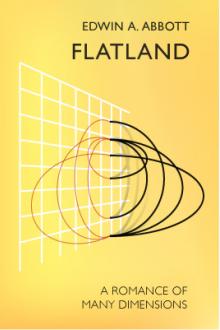Lorna Doone: A Romance of Exmoor, R. D. Blackmore [websites to read books for free txt] 📗

- Author: R. D. Blackmore
Book online «Lorna Doone: A Romance of Exmoor, R. D. Blackmore [websites to read books for free txt] 📗». Author R. D. Blackmore
'Dulverton to Watchett!' I cried. 'Now what does that remind me of? I am sure, I remember something—'
'Remember this, John, if anything—that another word from thee, and thou hast no more of mine. Well, I was a little weary perhaps, having been plagued at Dulverton with the grossness of the people. For they would tell me nothing at all about their fellow-townsmen, your worthy Uncle Huckaback, except that he was a God-fearing man, and they only wished I was like him. I blessed myself for a stupid fool, in thinking to have pumped them; for by this time I might have known that, through your Western homeliness, every man in his own country is something more than a prophet. And I felt, of course, that I had done more harm than good by questioning; inasmuch as every soul in the place would run straightway and inform him that the King's man from the other side of the forest had been sifting out his ways and works.'
'Ah,' I cried, for I could not help it; 'you begin to understand at last, that we are not quite such a set of oafs, as you at first believed us.'
'I was riding on from Dulverton,' he resumed, with great severity, yet threatening me no more, which checked me more than fifty threats: 'and it was late in the afternoon, and I was growing weary. The road (if road it could be called) 'turned suddenly down from the higher land to the very brink of the sea; and rounding a little jut of cliff, I met the roar of the breakers. My horse was scared, and leaped aside; for a northerly wind was piping, and driving hunks of foam across, as children scatter snow-balls. But he only sank to his fetlocks in the dry sand, piled with pop-weed: and I tried to make him face the waves; and then I looked about me.
'Watchett town was not to be seen, on account of a little foreland, a mile or more upon my course, and standing to the right of me. There was room enough below the cliffs (which are nothing there to yours, John), for horse and man to get along, although the tide was running high with a northerly gale to back it. But close at hand and in the corner, drawn above the yellow sands and long eye-brows of rackweed, as snug a little house blinked on me as ever I saw, or wished to see.
'You know that I am not luxurious, neither in any way given to the common lusts of the flesh, John. My father never allowed his hair to grow a fourth part of an inch in length, and he was a thoroughly godly man; and I try to follow in his footsteps, whenever I think about it. Nevertheless, I do assure you that my view of that little house and the way the lights were twinkling, so different from the cold and darkness of the rolling sea, moved the ancient Adam in me, if he could be found to move. I love not a house with too many windows: being out of house and doors some three-quarters of my time, when I get inside a house I like to feel the difference. Air and light are good for people who have any lack of them; and if a man once talks about them, 'tis enough to prove his need of them. But, as you well know, John Ridd, the horse who has been at work all day, with the sunshine in his eyes, sleeps better in dark stables, and needs no moon to help him.
'Seeing therefore that this same inn had four windows, and no more, I thought to myself how snug it was, and how beautiful I could sleep there. And so I made the old horse draw hand, which he was only too glad to do, and we clomb above the spring-tide mark, and over a little piece of turf, and struck the door of the hostelry. Some one came and peeped at me through the lattice overhead, which was full of bulls' eyes; and then the bolt was drawn back, and a woman met me very courteously. A dark and foreign-looking woman, very hot of blood, I doubt, but not altogether a bad one. And she waited for me to speak first, which an Englishwoman would not have done.
'“Can I rest here for the night?” I asked, with a lift of my hat to her; for she was no provincial dame, who would stare at me for the courtesy; “my horse is weary from the sloughs, and myself but little better: beside that, we both are famished.”
'“Yes, sir, you can rest and welcome. But of food, I fear, there is but little, unless of the common order. Our fishers would have drawn the nets, but the waves were violent. However, we have—what you call it? I never can remember, it is so hard to say—the flesh of the hog salted.”
'“Bacon!” said I; “what can be better? And half dozen of eggs with it, and a quart of fresh-drawn ale. You make me rage with hunger, madam. Is it cruelty, or hospitality?”
'“Ah, good!” she replied, with a merry smile, full of southern sunshine: “you are not of the men round here; you can think, and you can laugh!”
'“And most of all, I can eat, good madam. In that way I shall astonish you; even more than by my intellect.”
'She laughed aloud, and swung her shoulders, as your natives cannot do; and then she called a little maid to lead my horse to stable. However, I preferred to see that matter done myself, and told her to send the little maid for the frying-pan and the egg-box.
'Whether it were my natural wit and elegance of manner; or whether it were my London freedom and knowledge of the world; or (which is perhaps the most probable, because the least pleasing supposition) my ready and permanent appetite, and appreciation of garlic—I leave you to decide, John: but perhaps all three combined to recommend me to the graces of my charming hostess. When I say “charming,” I mean of course by manners and by intelligence, and most of all by cooking; for as regards external charms (most fleeting and fallacious) hers had ceased to cause distress, for I cannot say how many years. She said that it was the climate—for even upon that subject she requested my opinion—and I answered, “if there be a change, let madam blame the seasons.”
'However, not to dwell too much upon our little pleasantries (for I always get on with these foreign women better than with your Molls and Pegs), I became, not inquisitive, but reasonably desirous to know, by what strange hap or hazard, a clever and a handsome woman, as she must have been some day, a woman moreover with great contempt for the rustic minds around her, could have settled here in this lonely inn, with only the waves for company, and a boorish husband who slaved all day in turning a potter's wheel at Watchett. And what was the meaning of the emblem set above her doorway, a very unattractive cat sitting in a ruined tree?
'However, I had not very long to strain my curiosity; for when she found out who I was, and how I held the King's commission, and might be called an officer,





Comments (0)